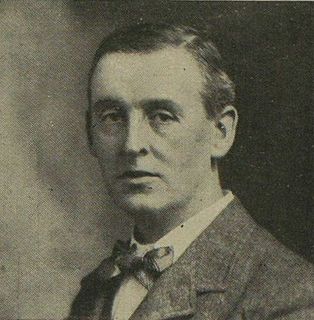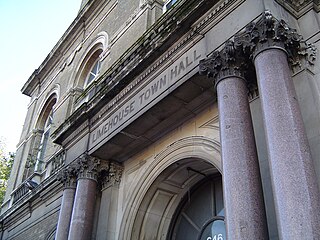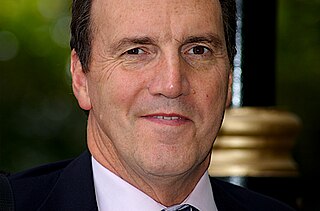
Sir Simon Henry Ward Hughes is a British politician. Hughes was Deputy Leader of the Liberal Democrats from 2010 to 2014, and from 2013 until 2015 was Minister of State at the Ministry of Justice. He was the Member of Parliament (MP) for the constituency of Bermondsey and Old Southwark from 1983 until 2015.
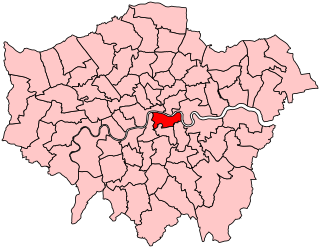
North Southwark and Bermondsey was a parliamentary constituency which returned one Member of Parliament (MP) to the House of Commons of the Parliament of the United Kingdom. The constituency was created for the 1997 general election.

A by-election was held in the Bermondsey constituency in South London, on 24 February 1983, following the resignation of Labour MP Bob Mellish. Peter Tatchell stood as the candidate for the Labour Party, and Simon Hughes stood for the Liberal Party. Following a bitter campaign, the Liberals made huge gains and took the seat, with a majority of votes cast. Labour's vote fell from 63.6 per cent in May 1979 to 26.1 per cent as Tatchell came a distant second, while the Conservative candidate, Robert Hughes, managed only fourth place. With a swing of 44.2%, the 1983 Bermondsey by-election remains the largest by-election swing in British political history.

Liverpool, Wavertree is a borough constituency of the Parliament of the United Kingdom. It was created in 1997 and every election since has been won by a Labour Party candidate. The constituency is currently held by Luciana Berger, who resigned her membership of the Labour Party on 19 February 2019 with six other MPs, joining a new centrist bloc of MPs.
The Greenwich by-election of 1987 was a by-election to the British House of Commons held on 26 February 1987, shortly before the 1987 general election. The election was caused by the death of Guy Barnett, Labour Party Member of Parliament for Greenwich on 24 December 1986.

The Bow and Bromley by-election was a by-election held on 26 November 1912 for the British House of Commons constituency of Bow and Bromley. It was triggered when the Labour Party Member of Parliament (MP), George Lansbury, accepted the post of Steward of the Chiltern Hundreds as a technical measure enabling him to leave Parliament.
John Molesworth Thomas Dumphreys was a British Conservative politician. He was elected Member of Parliament for Bermondsey in a 1909 by-election, but weeks later lost the seat to the Liberals at the January 1910 General Election.
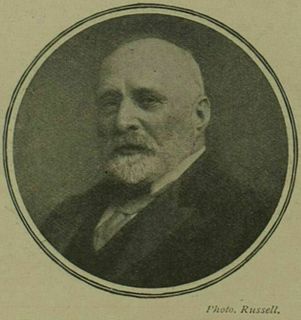
George Joseph Cooper was a British Liberal Party politician in London.
A by-election was held for the British House of Commons constituency of Sheffield Attercliffe on 4 May 1909.
The Islington East by-election, 1917 was a parliamentary by-election for the British House of Commons constituency of Islington East held on 23 October 1917.
This was a parliamentary by-election for the British House of Commons constituency of Leith
The North Dorset by-election, 1937 was a parliamentary by-election for the British House of Commons constituency of North Dorset on 13 July 1937.
The Newcastle-upon-Tyne by-election was a Parliamentary by-election. It returned two Members of Parliament to the House of Commons of the United Kingdom, elected by the first past the post voting system.
The Ashford by-election, 1933 was a parliamentary by-election for the British House of Commons constituency of Ashford on 17 March 1933.
The Manchester North West by-election was a Parliamentary by-election. It returned one Member of Parliament to the House of Commons of the United Kingdom, elected by the first past the post voting system.
The North West Staffordshire by-election was a Parliamentary by-election. It returned one Member of Parliament to the House of Commons of the United Kingdom, elected by the first past the post voting system.
The Jarrow by-election of 1907 was held on 4 July 1907.
(1 ed.). London: Macmillan.








